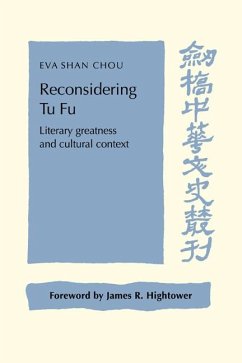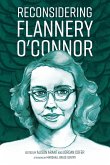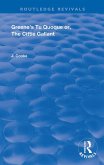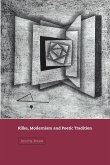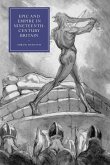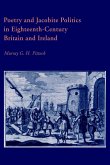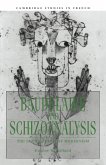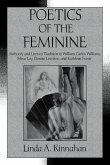Tu Fu is, by universal consent, the greatest poet of the Chinese tradition. In the epochal An Lushan rebellion, he alone of his contemporaries consistently recorded in poetry the great events and pervasive sufferings of the time. For a millennium now, Tu Fu's poetry has been accepted as epitomizing the Chinese moral conscience at its highest, and as such his work has been placed almost beyond the reach of criticism. Indeed, objectivity about Tu Fu has often been viewed as criticism of him. In Reconsidering Tu Fu, Eva Shan Chou proposes that these thorny problems be met by separating his legacy into two distinct but related aspects: as cultural monument and as a great and original poet. Examining Tu Fu as cultural icon, she investigates the evolution and nature of his reputation and shows its continuing effect upon interpretations of his poetry. In her discussions of the poetic legacy, she introduces concepts relating to subject matter, style, genre, structure, theme, and voice, in order to provide for a fruitful reconsideration of his poetry. Many poems are discussed, both well known and less familiar. Dr. Chou's analyses are original in their formulation and also considerate of the many fine readings of traditional commentators.
Hinweis: Dieser Artikel kann nur an eine deutsche Lieferadresse ausgeliefert werden.
Hinweis: Dieser Artikel kann nur an eine deutsche Lieferadresse ausgeliefert werden.

